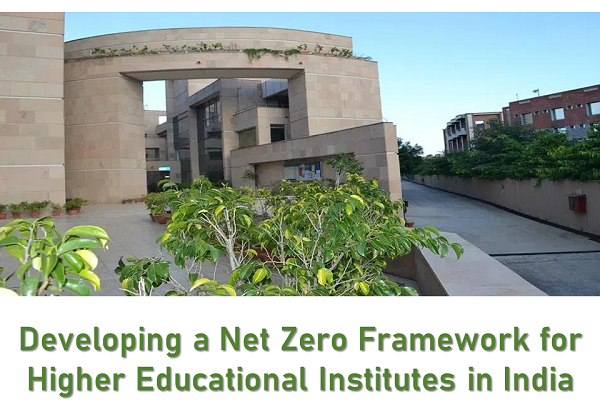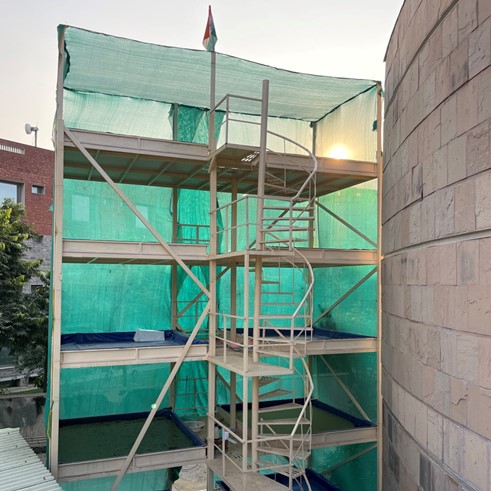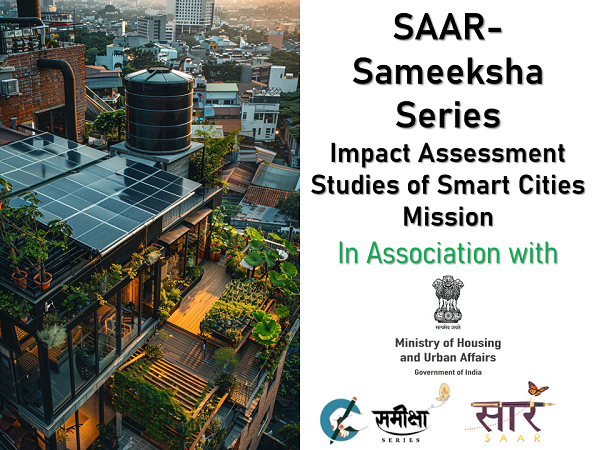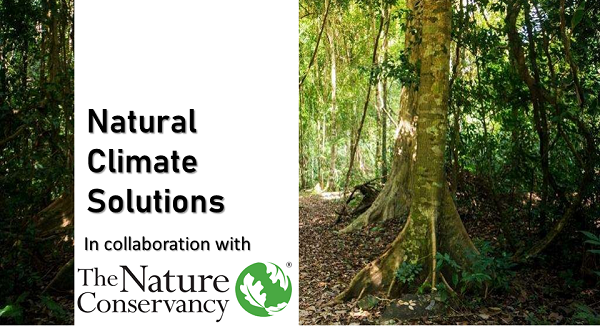Our Research
Ongoing Reseach
Developing a Framework for Carbon-Neutral Educational Campuses

Our centre is currently leading an ambitious initiative, Developing a Framework for Carbon-Neutral Educational Campuses, focusing on actionable ways to reduce the carbon footprint of Indian Higher Education Institutions (HEIs) across Scope 1, 2, and 3 emissions. This project is in response to the Government of India's call to align HEIs with the Sustainable Development Goals (SDGs) by fostering environmentally conscious practices, as advocated in the NEP 2020 and the LiFE (Lifestyle Change for Environment) mission. In support of these objectives, the University Grants Commission has encouraged HEIs to embrace sustainability across all facets of campus life—education, research, curriculum, training, and campus operations.
Using TERI SAS as a case study, we are developing a replicable framework that will help HEIs embark on their carbon-neutral journey. This includes identifying key operational strategies to reduce emissions and fostering a shift in campus culture towards sustainability. By empowering students, faculty, and staff to actively contribute to the campus's environmental goals, we aim to create a comprehensive, inclusive approach that other institutions can adopt.
The project also prioritises active engagement with other HEIs, aiming for a wide-reaching impact by sharing insights, resources, and best practices that support the transition to carbon-neutral campuses across India. This initiative aspires to be a model for HEIs, paving the way for campuses across the country to not only achieve carbon neutrality but also to cultivate an enduring commitment to sustainability in the next generation of leaders.
Carbon Capture Prototype Plant at TERI SAS

Our centre is spearheading an innovative project to establish a nature-based carbon capture prototype plant at TERI SAS using the Azonian Process. This initiative explores cutting-edge ways to capture and mitigate carbon emissions by harnessing the remarkable properties of the aquatic fern Azolla. Known for its rapid growth and high carbon absorption capacity, Azolla is ideally suited for large-scale carbon capture efforts.
The project involves constructing a vertical carbon capture tower capable of capturing up to 0.5 tons of CO2 annually. This unique setup utilises Azolla’s natural efficiency to absorb CO2, providing a scalable and sustainable carbon capture solution. Beyond carbon capture, this prototype also opens doors to additional greenhouse gas (GHG) mitigation strategies by utilizing the biomass generated in various eco-friendly applications.
This prototype has the potential to be a replicable model for nature-based carbon capture that can be adapted by other institutions or sectors. This project also highlights the potential of leveraging plant-based solutions in the broader fight against climate change, combining technological innovation with nature’s resilience.
SAAR - Sameeksha Series: Impact Assessment Studies of Smart Cities Mission

The SAAR - Sameeksha Series is a research initiative that explores the impact of India's Smart Cities Mission (SCM) on making cities more climate-resilient and sustainable. This project took a close look at how the SCM is helping cities adapt to climate change, improve urban living, and meet global sustainability goals, especially in areas like clean energy, green buildings, and sustainable transport. It helped us to understand how the Smart Cities Mission is driving change in Indian cities, and what needs to be done to ensure all cities can thrive sustainably. The findings aim to guide future city planning and policy-making, ensuring that climate-sensitive development becomes a core part of urban growth in India.
Through a mix of research, field visits, and data collection, the project assessed the effectiveness of SCM across various cities. We focused on understanding how different smart city projects are contributing to a greener, more sustainable future for India’s urban spaces. The study included visiting cities like New Delhi, Jaipur, and Lucknow, and looking at how they’re addressing climate challenges through innovative urban planning and community-focused solutions.
The project found that some cities, like Chandigarh and Thane, are making great strides in integrating climate-friendly initiatives, while others need more support. We looked at how well cities are adopting renewable energy, improving air quality, enhancing green spaces, and managing waste. The research also highlighted the importance of local governments and partnerships in making these projects successful.
Natural Climate Solutions: Building a Sustainable Future for India

The Centre's Knowledge and Training Programme, in collaboration with The Nature Conservancy (TNC), focused on advancing Natural Climate Solutions (NCS) to address pressing environmental challenges in India. With issues like climate change vulnerability and land degradation threatening both ecosystems and communities, NCS offers an innovative approach to support climate resilience while balancing ecological conservation with developmental goals. What Are Natural Climate Solutions?
Natural Climate Solutions are strategies that leverage nature’s processes—such as afforestation, soil conservation, and ecosystem restoration—to capture carbon and support biodiversity. These approaches integrate the ecosystem services model, ensuring that climate action goes hand in hand with protecting natural resources, creating sustainable livelihoods, and enhancing local resilience.
Programme Goals and Actions:
The Knowledge and Training Programme is committed to building capacity and awareness among policymakers, researchers, and environmental practitioners around NCS principles. The programme encourages a shift toward sustainable forest management practices and climate-smart development by combining scientific insights with practical solutions. Its efforts align with a vision of resilience and well-being for both people and nature.
Engagement across States
To foster collaboration, the programme has organized roundtable discussions with state forest departments across 16 states, including Gujarat, Uttar Pradesh, Tamil Nadu, and West Bengal. These discussions have brought together district-level officers, senior officials, and other key stakeholders to address state-specific environmental challenges and share best practices. The roundtables serve as a platform for learning and collaboration, ensuring that NCS initiatives are responsive to local conditions and needs.
Through this comprehensive approach, the Knowledge and Training Programme aims to catalyse meaningful change, advancing sustainable practices that strengthen India’s ecosystems and communities.
Event: National Roundtable on Promoting Natural Climate Solutions in India
Date: November 11, 2024
Venue: TERI School of Advanced Studies (TERI-SAS), Vasant Kunj, New Delhi
Organized by the Emerson Centre of Excellence for Sustainability Studies, with support from The Nature Conservancy, the National Roundtable at TERI-SAS marked the culmination of regional dialogues held across 16 states and Union Territories. The event focused on advancing Natural Climate Solutions (NCS) as a pivotal strategy for addressing climate change, conserving biodiversity, and enhancing livelihoods.
Through collaborative discussions and knowledge-sharing, the Roundtable explored innovative strategies and best practices for achieving India's climate and biodiversity targets. The dialogue underscored NCS's critical role in fostering sustainable development while supporting global and national climate objectives.
Completed Research
Green Public Procurement in the Energy Sector

This project explores the Green Public Procurement (GPP) process, focusing on operational tools that incorporate environmental considerations into procurement operations. It presents a comprehensive analysis of GPP interventions across key stages of the energy procurement cycle: generation, transmission, and distribution. The study highlights three pivotal sub-sectors—BEE's star labelling program, heavy machinery, and renewable energy—specifically rooftop solar electricity distribution in residential areas. These sub-sectors align with government policies aiming to enhance energy savings, improve production efficiency, and transition from non-renewable to renewable energy sources.
By greening the energy supply chain, these areas demonstrate significant potential for driving sustainable consumption and production systems. The study’s primary objective is to provide an overarching perspective on GPP in India's energy sector to inform policy development. The objectives are:
Evaluation of challenges and opportunities through interactions with key stakeholders, a. An empirical assessment (cost-benefit analysis) of green public procurement of rooftop solar PV in the residential sector, and
b. Development of key recommendations relating to green public procurement in the energy sector.
Through these evaluations, the study aimed to advance the integration of sustainable practices in India's energy procurement, fostering an environmentally resilient energy framework.
Developing a Framework for Carbon-Neutral Educational Campuses

Our centre is currently leading an ambitious initiative, Developing a Framework for Carbon-Neutral Educational Campuses, focusing on actionable ways to reduce the carbon footprint of Indian Higher Education Institutions (HEIs) across Scope 1, 2, and 3 emissions. This project is in response to the Government of India's call to align HEIs with the Sustainable Development Goals (SDGs) by fostering environmentally conscious practices, as advocated in the NEP 2020 and the LiFE (Lifestyle Change for Environment) mission. In support of these objectives, the University Grants Commission has encouraged HEIs to embrace sustainability across all facets of campus life—education, research, curriculum, training, and campus operations.
Using TERI SAS as a case study, we are developing a replicable framework that will help HEIs embark on their carbon-neutral journey. This includes identifying key operational strategies to reduce emissions and fostering a shift in campus culture towards sustainability. By empowering students, faculty, and staff to actively contribute to the campus's environmental goals, we aim to create a comprehensive, inclusive approach that other institutions can adopt.
The project also prioritises active engagement with other HEIs, aiming for a wide-reaching impact by sharing insights, resources, and best practices that support the transition to carbon-neutral campuses across India. This initiative aspires to be a model for HEIs, paving the way for campuses across the country to not only achieve carbon neutrality but also to cultivate an enduring commitment to sustainability in the next generation of leaders.
Carbon Capture Prototype Plant at TERI SAS

Our centre is spearheading an innovative project to establish a nature-based carbon capture prototype plant at TERI SAS using the Azonian Process. This initiative explores cutting-edge ways to capture and mitigate carbon emissions by harnessing the remarkable properties of the aquatic fern Azolla. Known for its rapid growth and high carbon absorption capacity, Azolla is ideally suited for large-scale carbon capture efforts.
The project involves constructing a vertical carbon capture tower capable of capturing up to 0.5 tons of CO2 annually. This unique setup utilises Azolla’s natural efficiency to absorb CO2, providing a scalable and sustainable carbon capture solution. Beyond carbon capture, this prototype also opens doors to additional greenhouse gas (GHG) mitigation strategies by utilizing the biomass generated in various eco-friendly applications.
This prototype has the potential to be a replicable model for nature-based carbon capture that can be adapted by other institutions or sectors. This project also highlights the potential of leveraging plant-based solutions in the broader fight against climate change, combining technological innovation with nature’s resilience.
SAAR - Sameeksha Series: Impact Assessment Studies of Smart Cities Mission

The SAAR - Sameeksha Series is a research initiative that explores the impact of India's Smart Cities Mission (SCM) on making cities more climate-resilient and sustainable. This project took a close look at how the SCM is helping cities adapt to climate change, improve urban living, and meet global sustainability goals, especially in areas like clean energy, green buildings, and sustainable transport. It helped us to understand how the Smart Cities Mission is driving change in Indian cities, and what needs to be done to ensure all cities can thrive sustainably. The findings aim to guide future city planning and policy-making, ensuring that climate-sensitive development becomes a core part of urban growth in India.
Through a mix of research, field visits, and data collection, the project assessed the effectiveness of SCM across various cities. We focused on understanding how different smart city projects are contributing to a greener, more sustainable future for India’s urban spaces. The study included visiting cities like New Delhi, Jaipur, and Lucknow, and looking at how they’re addressing climate challenges through innovative urban planning and community-focused solutions.
The project found that some cities, like Chandigarh and Thane, are making great strides in integrating climate-friendly initiatives, while others need more support. We looked at how well cities are adopting renewable energy, improving air quality, enhancing green spaces, and managing waste. The research also highlighted the importance of local governments and partnerships in making these projects successful.
Natural Climate Solutions: Building a Sustainable Future for India

The Centre's Knowledge and Training Programme, in collaboration with The Nature Conservancy (TNC), focused on advancing Natural Climate Solutions (NCS) to address pressing environmental challenges in India. With issues like climate change vulnerability and land degradation threatening both ecosystems and communities, NCS offers an innovative approach to support climate resilience while balancing ecological conservation with developmental goals. What Are Natural Climate Solutions?
Natural Climate Solutions are strategies that leverage nature’s processes—such as afforestation, soil conservation, and ecosystem restoration—to capture carbon and support biodiversity. These approaches integrate the ecosystem services model, ensuring that climate action goes hand in hand with protecting natural resources, creating sustainable livelihoods, and enhancing local resilience.
Programme Goals and Actions:
The Knowledge and Training Programme is committed to building capacity and awareness among policymakers, researchers, and environmental practitioners around NCS principles. The programme encourages a shift toward sustainable forest management practices and climate-smart development by combining scientific insights with practical solutions. Its efforts align with a vision of resilience and well-being for both people and nature.
Engagement across States
To foster collaboration, the programme has organized roundtable discussions with state forest departments across 16 states, including Gujarat, Uttar Pradesh, Tamil Nadu, and West Bengal. These discussions have brought together district-level officers, senior officials, and other key stakeholders to address state-specific environmental challenges and share best practices. The roundtables serve as a platform for learning and collaboration, ensuring that NCS initiatives are responsive to local conditions and needs.
Through this comprehensive approach, the Knowledge and Training Programme aims to catalyse meaningful change, advancing sustainable practices that strengthen India’s ecosystems and communities.
Event: National Roundtable on Promoting Natural Climate Solutions in India
Date: November 11, 2024
Venue: TERI School of Advanced Studies (TERI-SAS), Vasant Kunj, New Delhi
Organized by the Emerson Centre of Excellence for Sustainability Studies, with support from The Nature Conservancy, the National Roundtable at TERI-SAS marked the culmination of regional dialogues held across 16 states and Union Territories. The event focused on advancing Natural Climate Solutions (NCS) as a pivotal strategy for addressing climate change, conserving biodiversity, and enhancing livelihoods.
Through collaborative discussions and knowledge-sharing, the Roundtable explored innovative strategies and best practices for achieving India's climate and biodiversity targets. The dialogue underscored NCS's critical role in fostering sustainable development while supporting global and national climate objectives.
Completed Research
Green Public Procurement in the Energy Sector

This project explores the Green Public Procurement (GPP) process, focusing on operational tools that incorporate environmental considerations into procurement operations. It presents a comprehensive analysis of GPP interventions across key stages of the energy procurement cycle: generation, transmission, and distribution. The study highlights three pivotal sub-sectors—BEE's star labelling program, heavy machinery, and renewable energy—specifically rooftop solar electricity distribution in residential areas. These sub-sectors align with government policies aiming to enhance energy savings, improve production efficiency, and transition from non-renewable to renewable energy sources.
By greening the energy supply chain, these areas demonstrate significant potential for driving sustainable consumption and production systems. The study’s primary objective is to provide an overarching perspective on GPP in India's energy sector to inform policy development. The objectives are:
Evaluation of challenges and opportunities through interactions with key stakeholders, a. An empirical assessment (cost-benefit analysis) of green public procurement of rooftop solar PV in the residential sector, and
b. Development of key recommendations relating to green public procurement in the energy sector.
Through these evaluations, the study aimed to advance the integration of sustainable practices in India's energy procurement, fostering an environmentally resilient energy framework.




